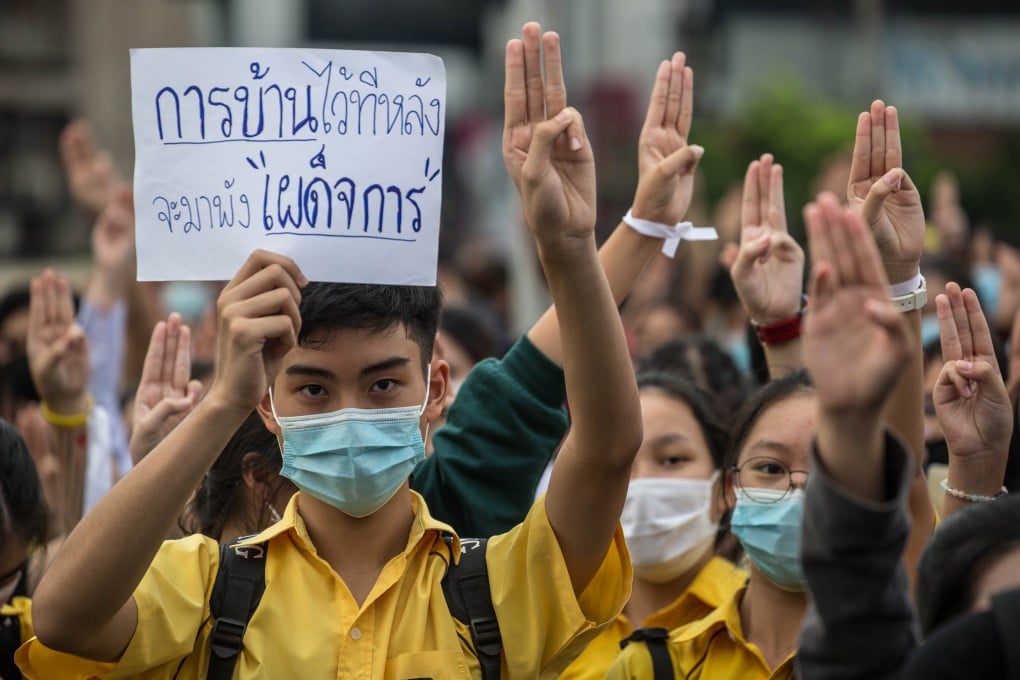As Thailand’s protests snowball, rattled royalists would rather blame a hidden foreign hand than look inward
- The kingdom’s desperate old guard cannot – or will not see the government’s muddled handling of the economy, and growing dissatisfaction with the monarchy
- But while the protest movement’s roots are internal, Thailand’s relationships with the US and China still have a part to play in its future

But to the thousands of young protesters taking to the streets over the past few months, those are just desperate attempts by a desperately out of touch old guard to deflect from reality.
Since its establishment as a constitutional monarchy in 1932, Thailand has failed to settle the question of just who should run its politics, with royals, elected officials and military juntas all weighing in to different degrees. The resulting turbulence has taken the form of endless rounds of coups, weak civilian governments as well as mass protests, and has left a residue of suspicion and recrimination that is now amplified by fake news and disinformation.
Warong Dechgitvigrom, leader of the arch-royalist Thai Pakdee group, suggested last week on Facebook that the monarchy was the target of so-called conspirators. “Today there’s a group of Thai people who are conspiring with foreigners to destroy the foundation of being Thai,” he said, without providing details to back up his claims as he called for Thais to “stand up against them”.

04:40
Thailand protests: How it all started
He has also previously cited the support of Joshua Wong, the Hong Kong opposition activist who regularly tweets encouragement to Thailand’s young protesters, as proof of politicians with “foreign backing” conspiring against the country.
Warong’s recent post appears to be linked to a press conference from October last year when then army chief Apirat Kongsompong showed a photo of Wong alongside a silhouette clearly identifiable as Thanathorn Juangroongruangkit – the political figurehead of Thailand’s pro-democracy movement – and railed against alleged “communist” plans to destabilise Thailand.